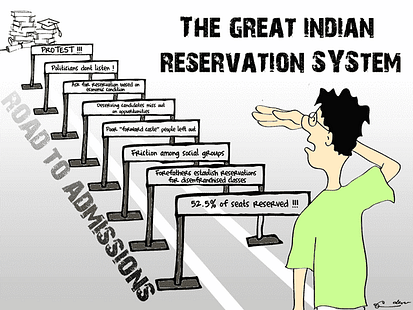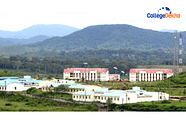
The Indian Constitution, drafted by Dr. B.R. Ambedkar, came into force on January 26, 1950. While framing the constitution, he took into consideration the condition of people at that time in the country. The society was caste dominant and broadly classified into four categories:-
- Brahmins
- Kshatriyas
- Vaishyas
- Sudras
Brahmins played a dominant role in the society and were considered as intellectuals in Vedas. Kshatriyas were proficient in skills related to war. Vaishyas were engaged in business and trading activities. Whereas Sudras were treated as a lower community, who needed to serve all the three upper classes of the society. They were not allowed to enter temples and were deprived of various privileges enjoyed by the upper classes.
Also read:- How Did Education Play an Important Role in Achieving Independence?
In context to this, you might have also read about various life experiences of Dr. B.R. Ambedkar who faced social discrimination while he was young.
Keeping the poverty of backward sections in view, Dr. B.R. Ambedkar mentioned reservations in the Indian Constitution for some sections of society that faced caste discrimination, and were deprived of a better standard of living.
The initiative taken by Dr. B.R. Ambedkar gave a tremendous boost to the upliftment of the backward classes. Today, these people are enjoying the privileges of all government schemes and are also able to secure top government jobs.
Also read:- Independence is so Overrated
The situation has changed now. Today, most of the people belonging to upper classes are craving to improve their standard of living by securing a job. However, the reservation system acts as a barrier to them. In most of the government recruitments, first preference is given to SC/ST and Other Backward Communities (OBCs).
Reservations must be given to those who are economically poor or below the poverty line. The government must not consider the community but the economic background of a person along with talent and skills.
Here we need to think about the Preamble of the Indian Constitution which states that India is a secular country. A secular state is free from religious, or caste differences and all the people are treated equally. Is the situation same when it comes to the reservation? What do you think? Talent must replace the reservation in all the recruitment activities and entrance examinations.
Most of the students feel that the scope of reservation must be limited. The students who do not have enough money to pursue education must be eligible to receive scholarships, reimbursements and reservations. Here the caste based system must be replaced with talent based system. One who has the talent and is deprived of achieving it because of monetary constraints shall be eligible to receive benefits of reservations.
Nowadays the students’ way of thinking and approach towards reservation has widened. They have a positive approach towards reservations and stress on talent rather than community. If the youth could bring the change in the reservation system, India will genuinely become a secular country.
So, to conclude, reservation system – a yes or a no – is debatable topic. The opinions of all may not help us come to a consensus. However, minor changes in the system may help the country be more rational and equal in this domain. We wish that the youth of today is able to influence in a positive way!
If you have other views on the reservations, please share your feedback with us!
















Similar Articles
Animation Courses After 12th: Popular Courses, Eligibility, Fees, Scope, Jobs & Salary
List of Aviation Exams in India: Dates, Eligibility, Exam Pattern, Application Form
SAMS Odisha +2 Admissions 2025: Application Form, Selection Process, Merit List, Top Colleges
How to Score 90 Percent in Class 12? - Preparation Tips to Score 90% in 12th
How to Score 90 Percent in Class 10? - Subject-Wise Preparation Tips to Score 90%
Police Ranks in India: Check Rank List PDF, Police Posts with Badges, Stars & Salary